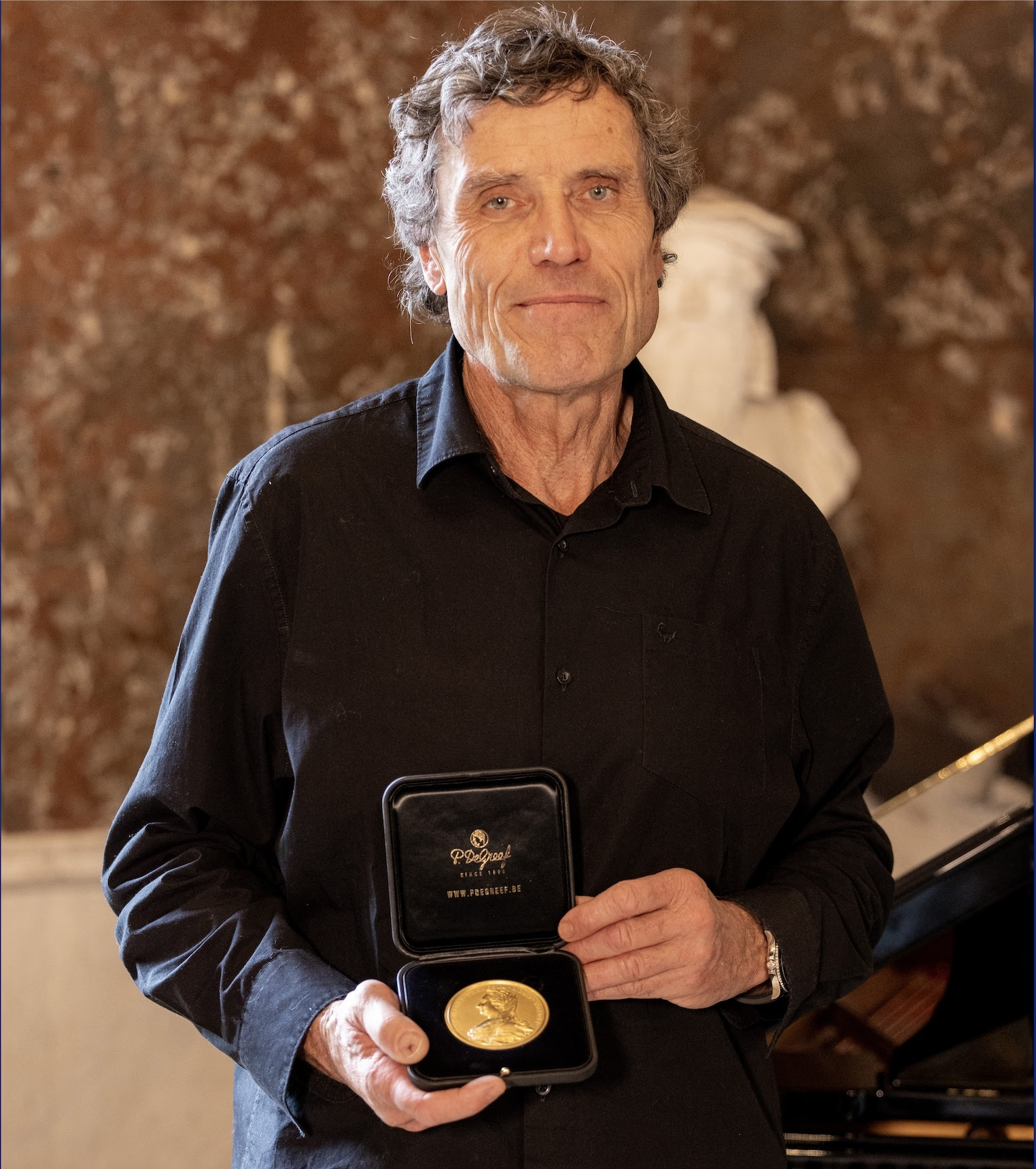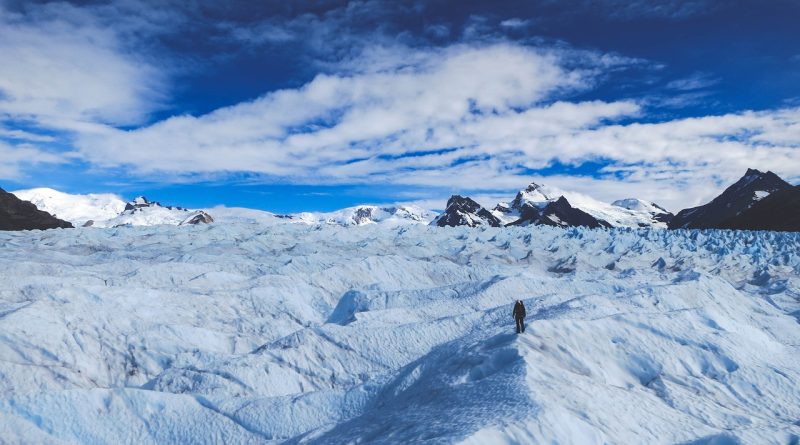Alain Hubert Awarded Prestigious Belgica Prize at Ceremony in Brussels
At a ceremony held the afternoon of Monday, June 10th at The Royal Academy for Sciences and the Arts of Belgium, Alain Hubert, Founder and President of the International Polar Foundation, received the prestigious Belgica Prize alongside French glaciologist Professor Jérôme Chappellaz.
The ceremony took place in front of a full room in the auditorium at the Royal Academy. Both laureates were introduced by members of the Royal Academy:
After both Alain Hubert and Professor Chappellaz received their medals from the Academy, both laureates gave presentations about their work. First, Professor Chappellaz spoke about his decades-long research tracking methane (one of the most powerful greenhouse gases) in Earth’s atmosphere in his work researching atmospheric gases trapped in ice cores taken at the poles. Afterwards, Alain Hubert recounted how his polar expeditions inspired him to establish the International Polar Foundation and to build the world’s first zero-emission polar research station, the Princess Elisabeth Antarctica.
“The Princess Elisabeth Antarctica is not only a first-of-its-kind research station, which has welcomed scientists from Belgium and internationally, but it also forces us to rethink our relationship with energy,” he stated during his acceptance speech.
The ceremony ended with a memorable 15-minute film that highlighted all of the research projects that have taken place at the Princess Elisabeth Antarctica over the last 17 years it has been operating.
The entire event was recorded and will be made available on the Academy’s website in the coming weeks.
“The Class of Sciences at the Royal Academy is very happy to award the Belgica Prize to Professor Jérôme Chappellaz and Alain Hubert,” commented the Academy. “In this the 125th anniversary year of the overwintering of the Belgica in Antarctica, we wanted to also recognise a modern explorer who has contributed so much to polar research, not only to the Belgian scientific community, but also to the international scientific community.”
The prestigious Belgica Prize is awarded every five years to persons who have made exceptional contributions to polar science during their careers.
Alain Hubert was awarded the prize in recognition of his record-breaking expeditions to the poles, realising the world’s first zero-emission polar research station, the Princess Elisabeth Antarctica, and helping to establish important scientific research programmes at this groundbreaking station.
The construction of the Princess Elisabeth Antarctica has breathed new life into Belgian polar research. The zero-emission station not only significantly reduces the environmental footprint of conducting scientific research in Antarctica, but it also regularly attracts world-class scientists from both Belgium and around the world, working in close collaboration to better understand our planet and its climate in fields such as glaciology, atmospheric sciences, biology, and the geosciences.

“It has been an honour and a privilege to have been able to contribute to the tradition of Belgian polar exploration and international polar research begun by Adrien de Gerlache, and to have helped Belgian polar researchers to benefit from a platform that fully exhibits their very considerable scientific prowess,” Mr Hubert commented about receiving the prize.
Dr Jérôme Chappellaz, who is currently affiliated with the EPFL (Ecole polytechnique fédérale de Lausanne) in Switzerland, received the award for his analysis of ice cores from Greenland and Antarctica, which have made it possible for scientists to reconstruct atmospheric methane concentrations over the last 800,000 years.
The EPFL is currently involved in a number of research projects being undertaken at the Princess Elisabeth Antarctica.
This year was the twelfth time the Belgica Prize has been awarded. It was initially established in 1904 by royal statute to commemorate the first overwintering expedition to Antarctica aboard the Belgica research vessel, led by Belgian Navy Lieutenant Adrien de Gerlache de Gomery in 1897-99, which was also the first international research expedition to Antarctica. The first recipients of the prize were members of the Belgica expedition crew and the diverse team of scientists who contributed to the quantity of scientific information collected during that voyage and during the year the ship spent in the sea ice in Antarctica.
Since 1963 the prize has been awarded every five years in recognition of the work of polar scientists active in Antarctica. A variety of researchers from Belgium and other countries have received the prestigious award. Notable winners include the Belgian Antarctic research expedition of 1957-58 (which began construction of Belgium’s King Baudouin research station), Edgard Picciotto (Geologist from the Université libre de Bruxelles who took part in several Belgian and American Antarctic research expeditions in the 1950s and 60s), Claude Lorius (Glaciologist and former President of the Scientific Committee on Antarctic Research), David John Drewry (former Director of the British Antarctic Survey), Dominique Raynaud (Glaciologist at the Centre national de recherche scientifique in France and 2007 Nobel Peace Prize winner), and Thomas Stocker (climatologist at the University of Bern).
The International Polar Foundation (IPF):
The IPF is a private law foundation with a public service mandate. It was set up in 2002 by Alain Hubert and the leading climate scientist André Berger and the glaciologist Hugo Decleir. Its remit is to support international polar scientific research and to disseminate the important findings to the public and decision makers.
The IPF was behind the creation of the Princess Elisabeth Antarctica station, which was officially inaugurated in 2007 as the first zero-emissions station. PEA re-established a Belgian presence in Antarctica at the service of science and concerned citizens increasingly facing climate and environmental challenges. Every year, the Princess Elisabeth Antarctica station hosts scientists from all over the World.

